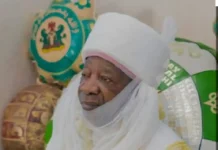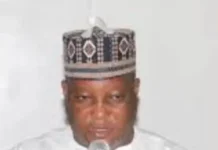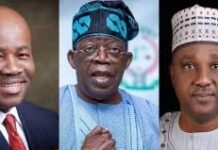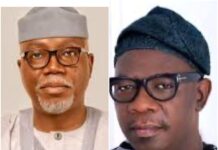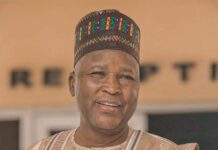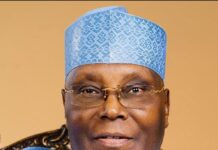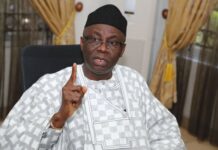Just like Civil War, Nigeria’ll Soon Overcome Insurgency, Buhari Reassures
POLITICS DIGEST – President Muhammadu Buhari has reassured Nigerians that the country will soon overcome the Boko Haram insurgency that has bedeviled the North-Eastern part of the country for over a decade.
He gave the assurance at the State House in Abuja on Friday, while receiving the European Union (EU) Commissioner for Crisis Management, Janez Lenarcic, saying that Nigeria had seen similar occasions in the past, but managed to overcome and forged on.
The President also assured that the newly created Ministry of Humanitarian Affairs, Disaster Management and Social Development will effectively manage all attendant crises from the insurgency.
Recalling his experience of the Nigerian Civil War, the President noted that the current security challenge in the North-East, though might take some time, will also be subdued, saying “If we were capable to fight a 30-month civil war and reorganised our country, I wonder why people are thinking that Nigeria cannot do it”.
According to a statement issued by his Special Adviser on Media and Publicity, Mr Femi Adesina, President Buhari emphasised the devastating effect of the Libyan crisis on the whole of the Sahel region of the continent, citing the activities of terror groups in Mali, Mauritania, Niger and Burkina Faso in recent times.
He, however, assured the European Union envoy of Nigeria’s continued cooperation with the EU, saying “I assure you of Nigeria’s commitment to enhance and deepen cooperation with the EU in all areas.
“Our priorities in the next level is to ensure that Internally Displaced Persons, IDPs, are rehabilitated so that livelihood should be established and the children should not lose the opportunity to go back to school, which is very important for the future of that area and Nigeria generally.
Read Also:
“We have the experience of the civil war. I could recall the role of the military, the army, each commander had in his pocket how to behave himself and how to allow international bodies like yourself to go round and see for themselves that people are treated in the most humane way. We have this experience and I assure you that we also have this confidence in your organisation. That is why I feel that Nigeria is capable of handling this crisis, it may take long but we are capable of handling it.
“The important thing really is weapons reaching the Sahel; the instability it is causing. Look at the casualties in Mauritania, Niger, Burkina Faso and Mali; Libya has a direct impact on the stability of the Sahel. As for Boko Haram, we try to disabuse the mind of the people and I think our people now understand the basic dishonesty in it. With my experience personally in the civil war, I am sure we will get over it.
“I assure you that we are aware of these problems and we will continue to do our best. The newly created Ministry of Humanitarian Affairs is coordinating NEMA and others, to make sure that whatever resources we get are well utilised. The ministry will be accountable to the government instead of having too many bodies doing the same thing. We are also reaching out to foreign countries explaining to them our position, and we are confident we will get over it”, the President said.
The EU Commissioner emphasized that Nigeria plays a big role in the African continent and globally in economic, social and other spheres and asked for the development of a plan between the EU and Nigeria concerning the issues in the Northeast. He said he had visited Borno State and appreciates government’s efforts to end the conflict there.
“We would like to support your efforts. We believe all relevant actors; military, civilian as well as humanitarian should come together. The Minister of Humanitarian Affairs is suggesting such high level dialogue.
“In situations such as what we have in the northeast, international law and international humanitarian law should apply. We believe in your efforts to end the conflict; military effort alone probably will not be sufficient without identifying and addressing the socio-economic factors causing it, “he stated.









